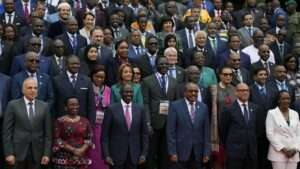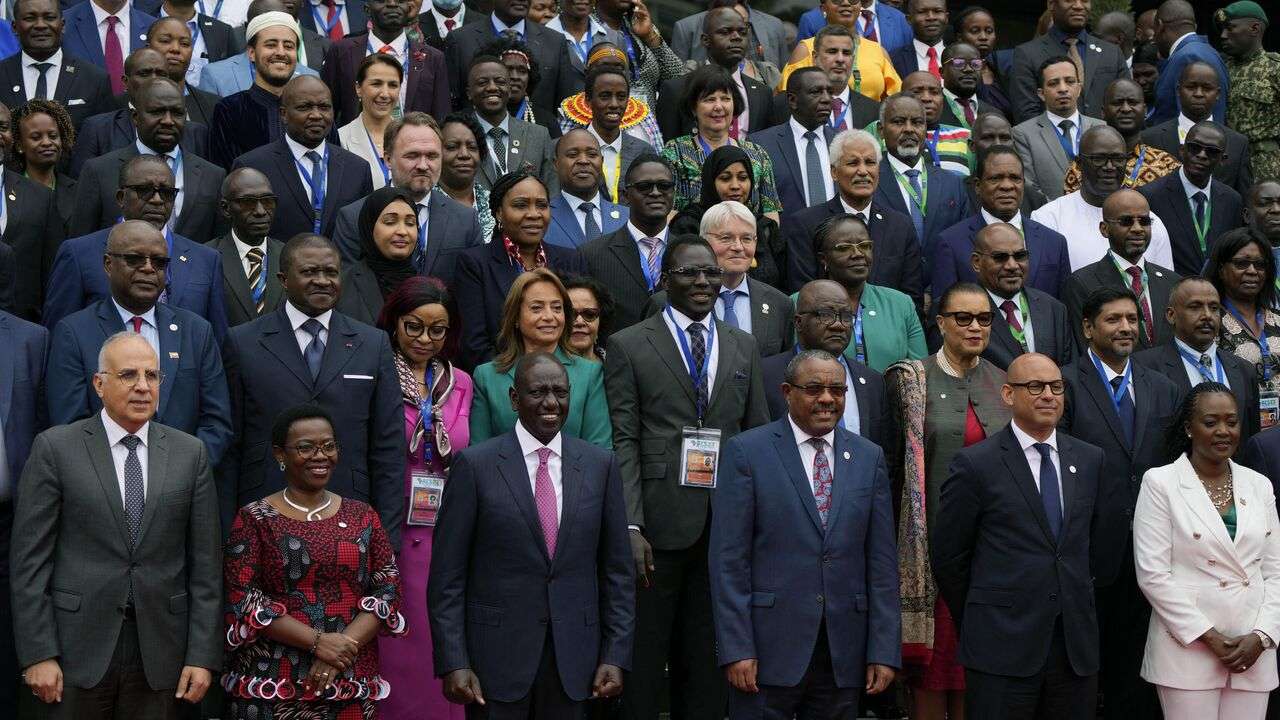Emerging leadership in Africa and its consequences

Image Courtesy – Sputnik Africa
South Africa took a historic step last week by initiating legal proceedings against Israel at the International Court of Justice (ICJ) in The Hague. This move intensifies the global call for Tel Aviv to cease the destructive and continuous airstrikes on the Gaza Strip, which commenced on October 7, 2023, resulting in the tragic loss of over 22,000 lives, with a notable portion being innocent children.
African leadership hasn’t stopped there. Africa, long recognized for its rich cultural diversity and historical significance, is increasingly becoming a focal point of emerging international leadership. As visionary leaders from various African nations step onto the global stage, they are redefining the continent’s role in international affairs. This essay explores examples of emerging international leadership from Africa, highlighting the transformative efforts of leaders who are making significant contributions to global diplomacy and cooperation.
>Ethiopia: Prime Minister Abiy Ahmed’s Diplomatic Initiatives
Ethiopia, under the leadership of Prime Minister Abiy Ahmed, stands out as a beacon of emerging international leadership. Prime Minister Abiy played a pivotal role in resolving the long-standing conflict between Ethiopia and Eritrea, earning him the Nobel Peace Prize in 2019. Beyond regional peacemaking, Abiy has actively engaged in diplomatic efforts on the global stage, promoting dialogue and collaboration. His leadership has not only contributed to stability in the Horn of Africa but has also positioned Ethiopia as a key player in shaping international relations.
>South Africa: President Cyril Ramaphosa’s Commitment to Multilateralism
President Cyril Ramaphosa of South Africa has emerged as a strong advocate for multilateralism and cooperation. His leadership has been characterized by efforts to strengthen regional integration through organizations like the African Union. President Ramaphosa played a crucial role in the establishment of the African Continental Free Trade Area (AfCFTA), a landmark agreement aimed at boosting intra-African trade. By championing economic collaboration and addressing global challenges collectively, South Africa’s leadership reflects a commitment to shaping a more interconnected and prosperous world.
>Nigeria: President Muhammadu Buhari’s Counterterrorism Cooperation
Nigeria, under the leadership of President Muhammadu Buhari, has demonstrated a commitment to international cooperation, particularly in addressing security challenges. As the most populous country in Africa, Nigeria’s influence extends beyond its borders. President Buhari has been actively engaged in counterterrorism efforts, collaborating with regional and international partners to combat insurgency and promote stability in the West African region. This proactive approach underscores Nigeria’s emerging role as a leader in addressing global security concerns.
>Rwanda: President Paul Kagame’s Technological Innovation Advocacy
President Paul Kagame of Rwanda has gained recognition for his emphasis on leveraging technology for development. Under his leadership, Rwanda has made significant strides in becoming a technology hub, with initiatives aimed at advancing e-governance, digital infrastructure, and innovation. President Kagame’s advocacy for technological advancement positions Rwanda as a leader in shaping the global discourse on the role of technology in fostering economic growth and societal progress.
While these examples illustrate the positive strides made by African leaders on the international stage, challenges such as economic disparities, political instability, and historical legacies persist. However, these challenges also present opportunities for collaboration, innovation, and shared solutions that can contribute to global progress.
>How is African nations furthering common interests?
It was not until September 2023 that the African Union became a participant in the G20, the forum where global economic decisions are formulated. This indicates that, concerning policymaking and decisions influencing the world economy, Africa has been striving to catch up in previous years. Economic strength plays a crucial role in the advancement of academic and research pursuits. Many African nations grapple with fundamental livelihood challenges, leaving limited resources for research investment. A mere 0.42% of GDP is allocated to research and development in Africa, starkly contrasting with the global average of 1.7%. As long as research funding in Africa depends on international sources, the continent remains reliant on donors to determine the nature of research and recipients of funding.
The African Union has assumed a pivotal role in enhancing Africa’s partnerships, realigning them strategically to address African priorities for growth and transformation, as outlined in the continent’s development roadmap, Agenda 2063. In recent months, various development partners collaborating with the African Union have engaged with the Chairperson of the AU Commission (AUC) and other leaders to explore ways to strengthen cooperation. The focus is on streamlining agreed projects and activities to ensure they contribute effectively to realizing “the Africa We Want.”
African leaders consistently exhibit global leadership qualities such as establishing trust, defining a vision, exercising sound judgment, and cultivating an environment that promotes well-being, among other attributes. One cultural aspect that potentially sets African leaders apart from their counterparts in other regions is their notable interpersonal sensitivity.
The prevailing theme for 2024 revolves around the question of leadership.
From South Africa to Algeria, one-third of the continent’s countries will witness the selection of new governments, encompassing nations like coup-affected Mali, Chad, and Burkina Faso — provided their junta leaders adhere to their commitments.
The emergence of international leadership from Africa marks a transformative chapter in global diplomacy. As visionary leaders navigate complex challenges and champion collaborative approaches, they are not only shaping the future of their own nations but also contributing to a more interconnected and harmonious world. Africa’s evolving role in international affairs underscores the importance of diverse perspectives and leadership styles in addressing the complex issues facing the global community.





